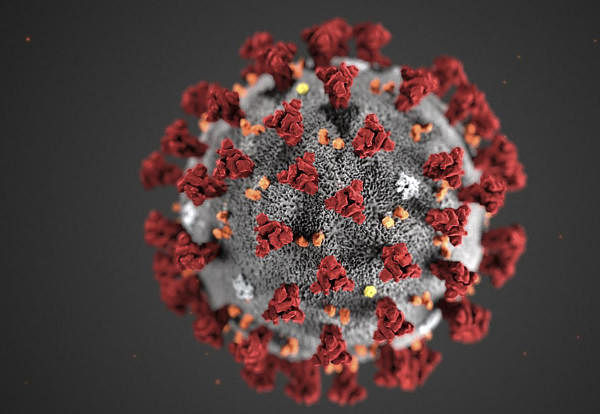
As part of a multi-pronged strategy to combat COVID-19, a nasal gel is being made.
The Indian Institute of Technology-Bombay is playing a lead role in the project initiated by the Department of Science and Technology (DST).
"The nasal gel, being developed in conjunction with other protective measures, will provide a strong extra layer of defense," according to Prof Ashutosh Sharma, Secretary, DST.
The Science and Engineering Research Board (SERB), a statutory body of the DST, is supporting a technology by the Department of Biosciences and Bioengineering (DBB), IIT Bombay for capturing and the inactivation of novel coronavirus, the causative agent of COVID-19.
The funding will help the team from the Department of Biosciences and Bioengineering, IIT Bombay develop a gel that can be applied to nasal passage, which is a major entry point of the coronavirus, according to a press statement.
This solution is not only expected to protect the safety of health workers, but can also lead to reduction in community transmission of COVID-19, thereby helping disease management.
Given the contagious nature of COVID-19, health providers, including doctors and nurses, are at maximum risk while taking care of COVID-19 patients, particularly asymptomatic ones who cannot be detected and pose a greater risk in spreading the disease.
The team is planning a two-pronged approach to limit transmission of the SARS-CoV-2 virus, the causative agent of COVID-19.
Primarily, since viruses replicate within host cells of the lungs, the first component of the strategy will be to inhibit the binding of viruses to host cells. While this is expected to reduce host cell infection, viruses will still remain active, therefore raising the need to inactivate them.
Secondly, biological molecules would be incorporated, which would inactivate the trapped viruses in a manner similar to that of detergents. Upon completion, this approach will lead to development of gels that can be locally applied in the nasal cavity.
"Our healthcare workers and others working in the front-line of the fight against the virus deserve a fool-proof, 200% protection. The nasal gel, being developed in conjunction with other protective measures, will provide a strong extra layer of defence," said Prof Sharma.
Prof Kiran Kondabagil, Prof Rinti Banerjee, Prof Ashutosh Kumar and Prof Shamik Sen from the IIT Bombay will be part of this project. The team has expertise in the areas encompassing virology, structural biology, biophysics, biomaterials, and drug delivery and it is expected that the technology would be ready in about nine months.